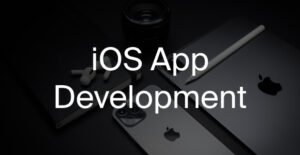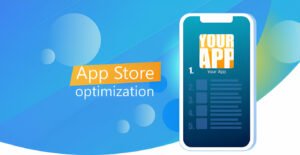Android vs iOS App Development: Unlocking the Ultimate Showdown
In the rapidly evolving world of mobile app development, two giants have emerged: Android and iOS. These two platforms dominate the market, and developers often face the dilemma of choosing between them. In this pillar blog post, we will unlock the ultimate showdown between Android and iOS app development. We will explore each platform’s key differences, advantages, and challenges.
By the end of this article, you will have a comprehensive understanding of both Android and iOS app development, enabling you to make an informed decision for your next app project.
Before we dive into the showdown, let’s gain a better understanding of Android and iOS app development.
Understanding Android vs iOS App Development
Android App Development:
- Android, developed by Google, is an open-source operating system that powers a wide range of smartphones and tablets.
- Android app development primarily utilizes Java and Kotlin programming languages.
- Android apps can be published on the Google Play Store, which boasts a vast library of apps.
- Developers have the advantage of working with an open-source codebase, allowing for greater customization and flexibility.
- Android devices are manufactured by various smartphone brands, resulting in a diverse ecosystem.

iOS App Development:
- iOS, developed by Apple, is a closed-source operating system exclusive to Apple devices such as iPhones and iPads.
- iOS app development primarily utilizes Swift and Objective-C programming languages.
- iOS apps can be published on the Apple App Store, which is known for its stringent review process and high-quality app selection.
- Developers work with a closed-source codebase, which ensures a more controlled and secure environment.
- Apple Inc. manufactures iOS devices, resulting in a unified ecosystem and consistent user experience across devices.

Key Differences Between Android and iOS App Development
Now, let’s explore the key differences that set Android and iOS app development apart.
Development Process:
- Android app development follows the Android Software Development Kit (SDK) and primarily uses Android Studio as the Integrated Development Environment (IDE).
- iOS app development follows the iOS Software Development Kit (SDK) and primarily uses Xcode as the Integrated Development Environment (IDE).
Programming Languages:
- Android app development primarily uses Java and Kotlin programming languages, offering a familiar environment for developers experienced in these languages.
- iOS app development primarily uses Swift and Objective-C programming languages, known for their safety features and concise syntax.

Market Share:
- Android holds a larger market share compared to iOS, making it an attractive platform for reaching a broader audience.
- iOS, although with a smaller market share, tends to attract users with higher purchasing power, offering greater revenue potential.
User Experience:
- Android provides a diverse range of devices, screen sizes, and user interfaces, resulting in a broader spectrum of user experiences.
- iOS offers a consistent and sleek user experience across devices due to Apple’s strict control over hardware and software.
App Revenue:
- Although Android has a larger user base, iOS users tend to spend more on apps, making iOS a lucrative platform for app monetization.
Customization and Flexibility:
- Android provides developers with a higher level of customization and flexibility, allowing them to create unique and innovative apps.
- iOS offers a more controlled environment, limiting customization options but ensuring a consistent and polished user experience.
Security Measures:
- Android has made significant strides in improving security measures, but it is often perceived as more prone to security vulnerabilities due to its open-source nature.
- iOS, known for its stringent security measures, offers a more secure environment due to Apple’s tight control over hardware and software.
Publishing Protocol:
- Android apps can be published on the Google Play Store, which has a more lenient review process than the Apple App Store.
- iOS apps can be published on the Apple App Store, which has stricter guidelines and a more rigorous review process, ensuring higher app quality.
Now that we have explored the key differences between Android and iOS app development, let’s delve into specific topics relevant to both platforms.
App Development Time and Effort:
Developing an app requires time and effort, and understanding the factors that influence development time is crucial for planning and resource allocation.
Target Audience and Market Share:
Analyzing the target audience and market share of each platform can help developers determine which platform is more suitable for their app.
Monetization and Revenue Potential:
Monetizing an app is a key consideration for developers. Understanding the revenue potential and available monetization strategies on both Android and iOS can contribute to a successful app business.
User Experience Design:
User experience (UX) design plays a crucial role in app development. Exploring the design principles and best practices for creating exceptional user experiences on both platforms is essential.
App Store Optimization (ASO):
App Store Optimization (ASO) is the process of improving the visibility and discoverability of an app in the app stores. Understanding ASO techniques specific to Android and iOS can help developers attract more users to their apps.

Cross-Platform Development:
Cross-platform development frameworks, such as Flutter and React Native, have gained popularity as they allow developers to build apps for both Android and iOS using a single codebase.
Emerging Trends and Technologies:
Staying updated with the latest trends and technologies in the app development industry is crucial. Exploring emerging trends specific to Android and iOS can help developers leverage new opportunities.
App Marketing Strategies:
Developing a great app is just the first step. Effective app marketing strategies are essential for reaching the target audience and driving app downloads. Exploring marketing techniques specific to Android and iOS can help developers promote their apps successfully.
Frequently Asked Questions (FAQs)
Q1: Is it possible to develop an app for both Android and iOS simultaneously?
Yes, it is possible to develop apps for both Android and iOS simultaneously using cross-platform development frameworks such as Flutter and React Native. These frameworks allow developers to write code once and deploy it on multiple platforms, reducing development time and effort.
Q2: Which platform should I choose for app development, Android or iOS?
The choice between Android and iOS app development depends on various factors, including your target audience, budget, development resources, and revenue goals. Analyzing these factors and understanding the key differences between the platforms will help you make an informed decision.
Q3: What are the key parameters to consider when choosing between Android and iOS app development?
Key parameters to consider include target audience, revenue potential, market share, customization requirements, development resources, and user experience expectations. Analyzing these parameters will help you make an informed decision based on your specific project needs.
Q4: Which platform has better security measures, Android or iOS?
Both Android and iOS have implemented stringent security measures to protect user data. While Android has made significant security improvements, iOS is often perceived as more secure due to Apple’s tight control over hardware and software.
Q5: How does the overall development cost differ between Android and iOS app development?
The overall development cost can vary based on factors such as the complexity of the app, development resources, and testing requirements. Android app development may require additional resources for testing on various devices, resulting in higher overall costs. On the other hand, iOS app development may require a higher initial investment due to the need for specialized hardware and software.
Conclusion
In this ultimate showdown between Android and iOS app development, we have explored each platform’s key differences, advantages, and challenges. Android offers a larger market share, greater customization options, and a diverse ecosystem, while iOS provides a consistent user experience, higher app revenue potential, and a controlled environment. The choice between Android and iOS app development depends on various factors, including your target audience, revenue goals, customization requirements, and development resources. By carefully analyzing these factors, you can make an informed decision that aligns with your specific project needs.

